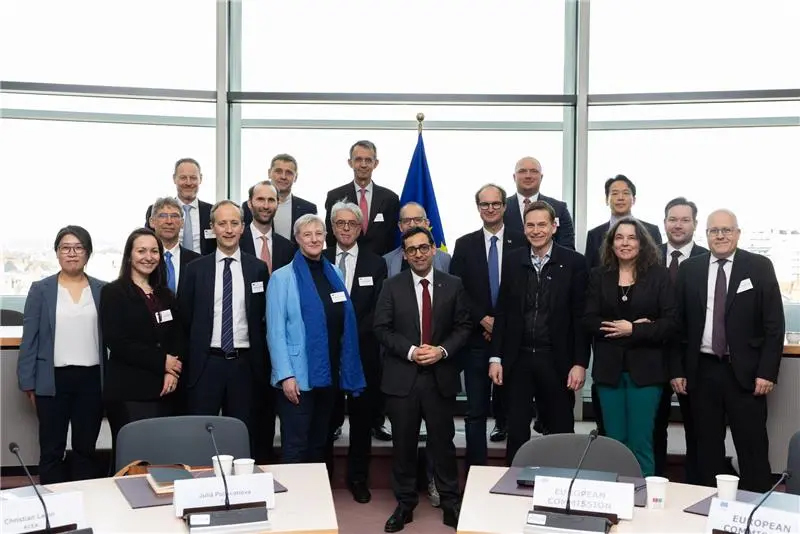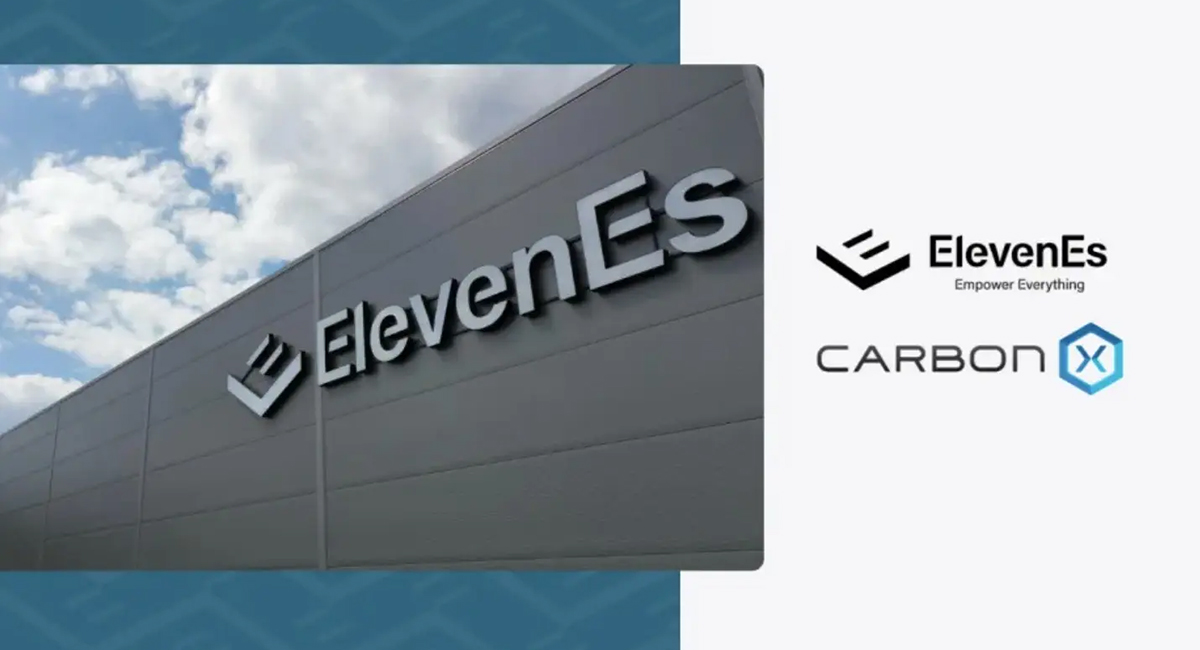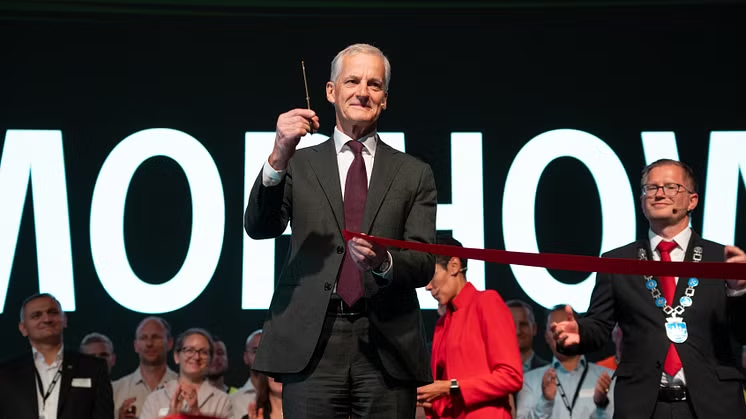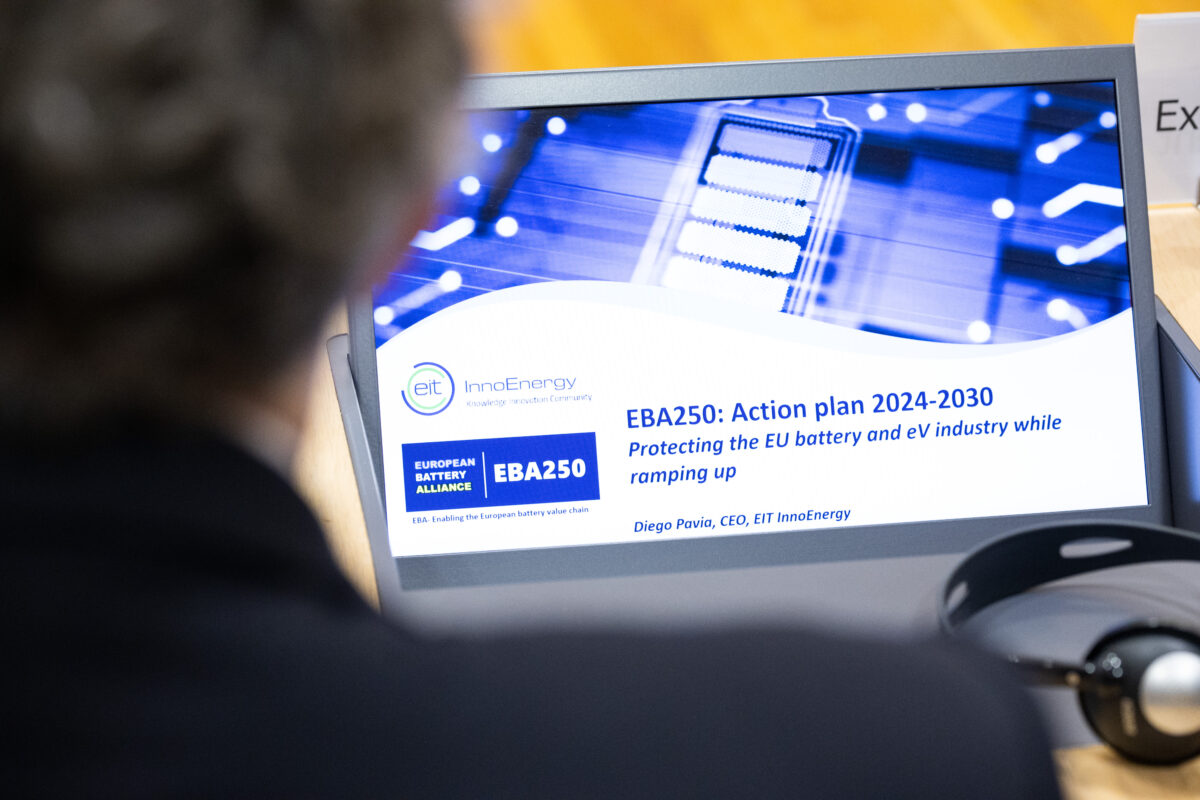
Dec 10, 2020
New regulation for batteries: an opportunity for the European battery industry to become the role model for carbon transparency
Today, the European Commission proposes to modernise EU legislation on batteries. Batteries placed on the EU market should become sustainable, high-performing and safe all along their entire life cycle. The development of a competitive and sustainable European battery industry has been the main purpose of our activities since EIT InnoEnergy was trusted by the European Commission to drive the industrial workstream of the European Battery Alliance, EBA250 back in 2017.
The need for a supportive regulatory framework has been highlighted by our stakeholders along the entire value chain from the very start and we are now welcoming this important piece of regulation that will influence the battery industry for many years to come. It will in fact be the single most important tool that enables Europe to build a truly sustainable battery industry supporting Europe’s transition to electrification.
The new legislation paves the way for a European battery value chain based on ethically sourced raw materials, sustainable battery production and increased recycling efforts towards a circular economy and there is every reason for European public bodies to embrace this regulation without further delays. It will also provide legal certainty that will help unlock large-scale investments and boost the production capacity for innovative and sustainable batteries in Europe and beyond to respond to the fast-growing market.
We would like to highlight three key areas that we deem of special importance to incentivise, support and ultimately steer the battery industry in the direction towards greener batteries and competitive sustainability for a circular and climate neutral economy.
Declaration of a carbon footprint for industrial and EV batteries
The Commission proposes measures to introduce a mandatory declaration of a carbon footprint that over time will be complemented with carbon footprint performance classes and maximum threshold values as a condition for the placement of batteries on the EU market. From 1 July 2024, only rechargeable industrial and electric vehicles batteries for which a carbon footprint declaration has been established, can be placed on the market. As stated in the regulation, such measures aim to contribute to the Union’s objective of reaching climate neutrality by 2050 and fight against climate change, as stated in the new Circular Economy Action Plan, for a cleaner and more competitive Europe. Furthermore, it will be an important tool to create transparency towards the consumer.
Sustainable batteries in a circular economy
The regulation features measures that will help to increase recycling of all types of batteries including new requirements and targets on the content of recycled materials and collection, treatment and recycling of batteries at the end-of-life part. Those measures will help to close the loop and maintain valuable materials used in batteries for as long as possible in the European economy.
Enhancing circularity and resource efficiency with increasing recycling efficiencies and defined recovery rates of certain raw materials, such as Co, Ni, Li, Cu and lead, will contribute to reaching that goal. An increased use of recovered materials supports the development of the circular economy and allow a more resource-efficient use of materials, while reducing Union dependency on materials from third countries. Concrete and ambitious targets for recycling efficiencies for those materials are an important step in this direction, before mandatory levels of recycled contents in batteries can be implemented, also taking into account that the amount of recycled battery material is still low and time should allowed to ramp up recycling capacities in Europe.
The proposed regulation also defines a framework which will facilitate the repurposing of batteries from electric vehicles so that they can have a second life, for example as stationary energy storage systems, or integration into electricity grids as energy resources.
Transparency and traceability
The development of a Battery passport will be an important step towards a more transparent battery market and help enhance the traceability of large batteries throughout their life cycle. The use of new IT-technologies in connection to this will enable manufacturers to develop innovative products and services as part of the twin green and digital transition.
Supply chain due diligence is a powerful tool to address the social and environmental risks of the extraction, processing and trading of raw materials for battery manufacturing purposes, especially in the view of the expected exponential growth in battery demand in the EU. Assuring high ethical standards for raw materials is a key aspect to the overall sustainable profile of a battery. This measure will also help to create transparency and thereby enhance societal appropriation for the entire battery industry as a key industry in the green transition.
In summary, EBA250 welcomes the proposed regulatory framework and is looking forward to the adoption of the preferred measures. We are convinced that this regulation will make Europe the global leader in sustainable battery production and is an important cornerstone in creating a competitive industry that will allow the European Union to capture a significant portion of the entire value chain of the rapidly expanding global battery market, which has been estimated at 250B€ annually from 2025 onwards.
Let’s not miss this opportunity!
More EBA250 news
InnoEnergy, the driving force behind the EBA250 initiative, introduces today its new brand identity,…
The new EU-funded facility will enhance global raw materials partnerships and access to Critical…
Last week, InnoEnergy and EBA250 represented the battery value chain in Brussels alongside Verkor…
ElevenEs, a European LFP lithium-ion battery manufacturer, has signed a Joint Development Agreement with…
The European battery industry has come a long way since the launch of the…
The 2024 Innovation Fund calls for proposals have been launched this week, with a…
Altris, a pioneering Swedish developer of sodium-ion battery technology, has reached significant milestones that…
Last Friday, Morrow Batteries officially inaugurated the first giga-scale LFP (Lithium Iron Phosphate) cell…
On May 24, 2024, the 8th High-Level Meeting of the European Battery Alliance (EBA)…
Following the recent announcement from EVP Šefčovič on the need to support manufacturing of…









